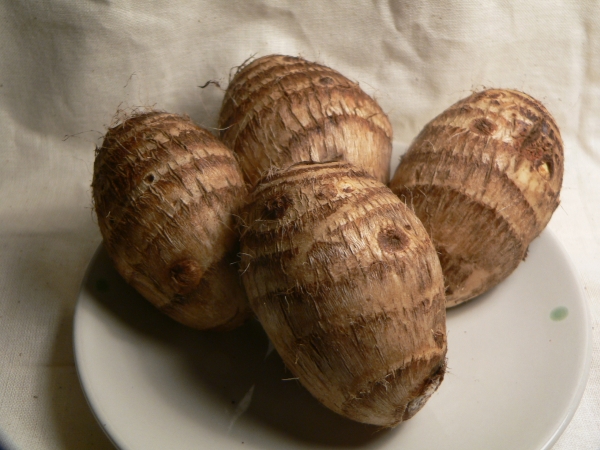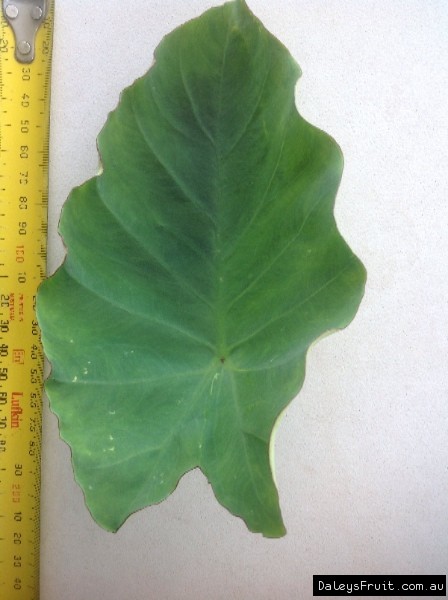Taro Japanese
Colocasia esculenta$18.75 ($17.90-$18.75 choose a size)
Specifications of Taro Japanese
Preferred Climate Tropical, SubtropicalLearn About Climate Zones
Grown From RhizomeLearn About Propagation Methods
Max Height (when in the ground with good conditions) 1-2m
Plants required to Pollinate 1 (Self Pollinating)Learn about Pollination
Can it Handle Frosts? Sometimes
Amount of leaves in Winter? All Leaves (Evergreen)
Suitability in Pots Yes
Water Requirements Frequent Watering
Is it a Dwarf Fruit Tree? Can be pruned to 2m
Time to Fruit/Flower/Harvest 2-3 Years
Sun or Shade Full (Sun:80%-100%), Part (Sun:50-80%)
Preferred Soil Type Poor Drainage (Clay)
Soil pH Neutral (6.6-7.3pH)
Fruiting/Harvest Months July, August, September
Create a Filter to find similar plants
Customers also bought
These plants are often purchased together. Also check plant information for suitability in your orchard.
Taro Pacific
$21.90
Jujube - Honey Jar
$109.00 ($109.00-$119.00 choose a size)
Dwarf Apple - Tropic Sweet
$49.00 ($49.00-$79.00 choose a size)
Chestnut - Reilly
$49.00 ($49.00-$79.00 choose a size)
Palm - Dwarf Acai
$39.00 ($39.00-$69.00 choose a size)
Lychee - Wai Chee
$49.00 ($49.00-$79.00 choose a size)
Customer Tips & Reviews Taro Japanese
GILBERTON, VIC
Taro Japanese
I hoping to eat some eventually; I planted it some time ago but haven't attended to it as it's in an area of the garden with self-seeding daikon coming up. Once the diakon are more obvious and can be walked around (or harvested), I will inspect the taro.
TAMWORTH, NSW, Australia
I love taro. I used to plant it in our backyard when i was a kid. We usually used it for snacks as a substitute for bread or junk foods. Growing beautifully near the entrance of the house. I might harvest it at the start of winter and leave some to o...



























